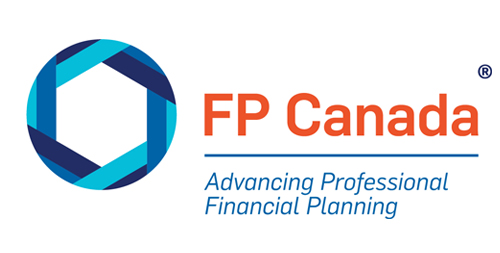Foundations of Tax
KNOWLEDGE EXPECTED OF: QAFP® Professionals
Highest Knowledge Level: Application
Knowledge Levels and Associated Verbs
|
Awareness
The state of being aware that something exists / to have familiarity with a particular activity or subject
|
Understanding
To comprehend the general relationship of particulars / to have an expertise with how something works
|
Application
Ability to put information to use / to use knowledge for relevant, practical purposes
|
Evaluation
To judge or conclude by utilizing data / a systematic determination of something’s worth or significance
|
||||||
|---|---|---|---|---|---|---|---|---|---|
|
Define
To state exactly the meaning of
|
Identify
To be aware of / to recognize and correctly name / to locate an appropriate resource
|
Explain
To make clear the meaning of / to describe something in more detail or reveal relevant facts or ideas related to it
|
Determine
To ascertain / to come to a decision, such as by investigation or reasoning
|
Compare
To note the similarities and differences between two or more things
|
Estimate
To determine an approximate value for
|
Calculate
To find the value using mathematics
|
Convert
To change from one form or purpose to another
|
Evaluate
To reach a conclusion or make a through careful study
|
Interpret
To give the meaning of / to construe or understand / to translate orally
|
Hold cursor over or click on each term to read its definition.
- Define taxation.
- Explain the purpose of taxation.
- Explain types of taxation that exist in Canada, such as:
- Income tax
- Sales tax
- Excise tax
- Property tax
- Explain the impact of taxation.
- On income
- On consumption
- Define income taxation (income tax) structures, such as:
- Progressive
- Flat
- Surtax
- Define types of income tax rates, such as:
- Marginal income tax rate
- Average income tax rate
- Effective marginal income tax rate
- Compare a marginal and average income tax rate.
- Define income tax avoidance.1
- Define income tax evasion.2
- Compare tax avoidance and tax evasion.3
- Letter of the law versus spirit of the law
- Potential for criminal consequences
- Explain the purpose of the General Anti-Avoidance Rule (GAAR) under the Canadian Income Tax Act.4
- Explain the purpose of income tax advice, such as:
- Minimize income tax
- Defer income tax
- Explain the factors that may affect income taxes, such as:
- Fair market value of assets
- Adjusted cost base of assets
- Liquidity of assets
- Ownership structure of assets
- Potential for capital gains / losses
- Availability of capital gains exemptions
- Availability of capital losses
- Sources of income
- Eligible tax deductions and credits
- Marginal tax rates
- Family circumstances
- Business interests
REFERENCES
KNOWLEDGE EXPECTED OF: CFP® Professionals
Highest Knowledge Level: Application
Knowledge Levels and Associated Verbs
|
Awareness
The state of being aware that something exists / to have familiarity with a particular activity or subject
|
Understanding
To comprehend the general relationship of particulars / to have an expertise with how something works
|
Application
Ability to put information to use / to use knowledge for relevant, practical purposes
|
Evaluation
To judge or conclude by utilizing data / a systematic determination of something’s worth or significance
|
||||||
|---|---|---|---|---|---|---|---|---|---|
|
Define
To state exactly the meaning of
|
Identify
To be aware of / to recognize and correctly name / to locate an appropriate resource
|
Explain
To make clear the meaning of / to describe something in more detail or reveal relevant facts or ideas related to it
|
Determine
To ascertain / to come to a decision, such as by investigation or reasoning
|
Compare
To note the similarities and differences between two or more things
|
Estimate
To determine an approximate value for
|
Calculate
To find the value using mathematics
|
Convert
To change from one form or purpose to another
|
Evaluate
To reach a conclusion or make a through careful study
|
Interpret
To give the meaning of / to construe or understand / to translate orally
|
Hold cursor over or click on each term to read its definition.
- Define taxation.
- Explain the purpose of taxation.
- Explain types of taxation that exist in Canada, such as:
- Income tax
- Sales tax
- Excise tax
- Property tax
- Explain the impact of taxation.
- On income
- On consumption
- Define income taxation (income tax) structures, such as:
- Progressive
- Flat
- Surtax
- Define types of income tax rates, such as:
- Marginal income tax rate
- Average income tax rate
- Effective marginal income tax rate
- Compare a marginal and average income tax rate.
- Define income tax avoidance.1
- Define income tax evasion.2
- Compare tax avoidance and tax evasion.3
- Letter of the law versus spirit of the law
- Potential for criminal consequences
- Explain the purpose of the General Anti-Avoidance Rule (GAAR) under the Canadian Income Tax Act.4
- Explain the purpose of income tax advice, such as:
- Minimize income tax
- Defer income tax
- Explain the factors that may affect income taxes, such as:
- Fair market value of assets
- Adjusted cost base of assets
- Liquidity of assets
- Ownership structure of assets
- Potential for capital gains / losses
- Availability of capital gains exemptions
- Availability of capital losses
- Sources of income
- Eligible tax deductions and credits
- Marginal tax rates
- Family circumstances
- Business interests


